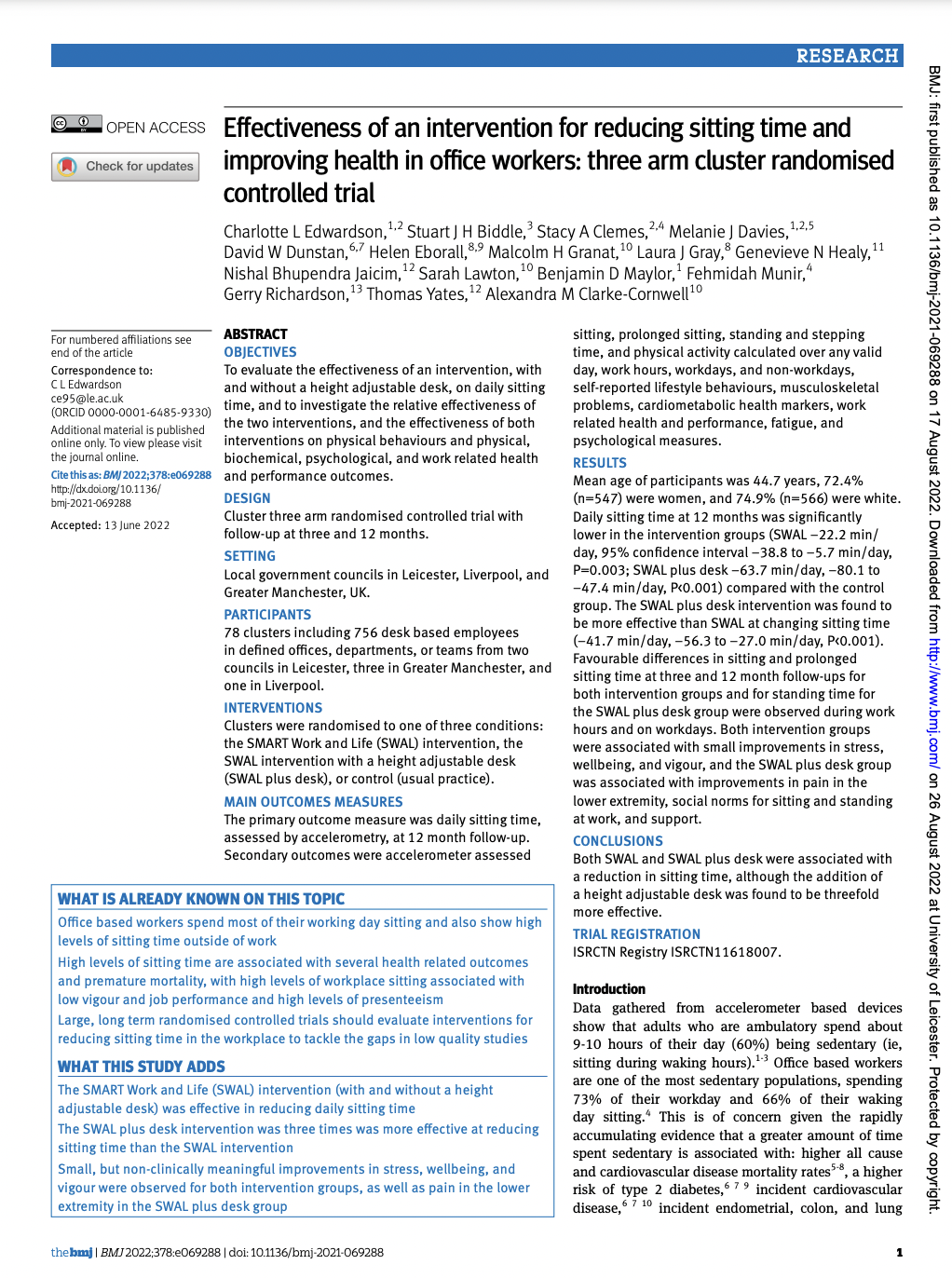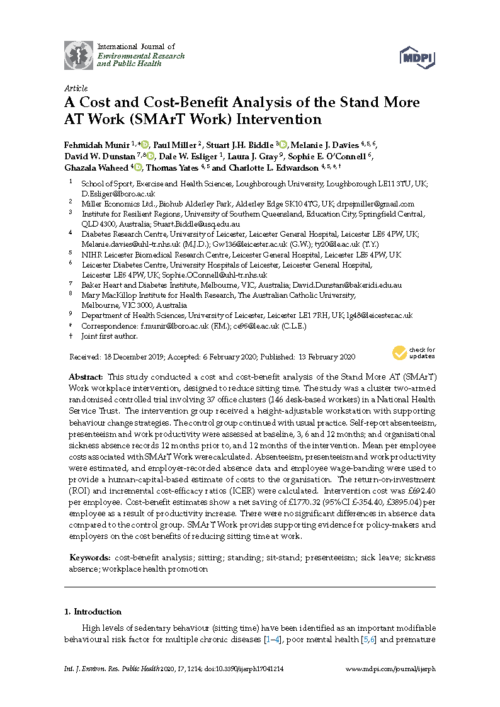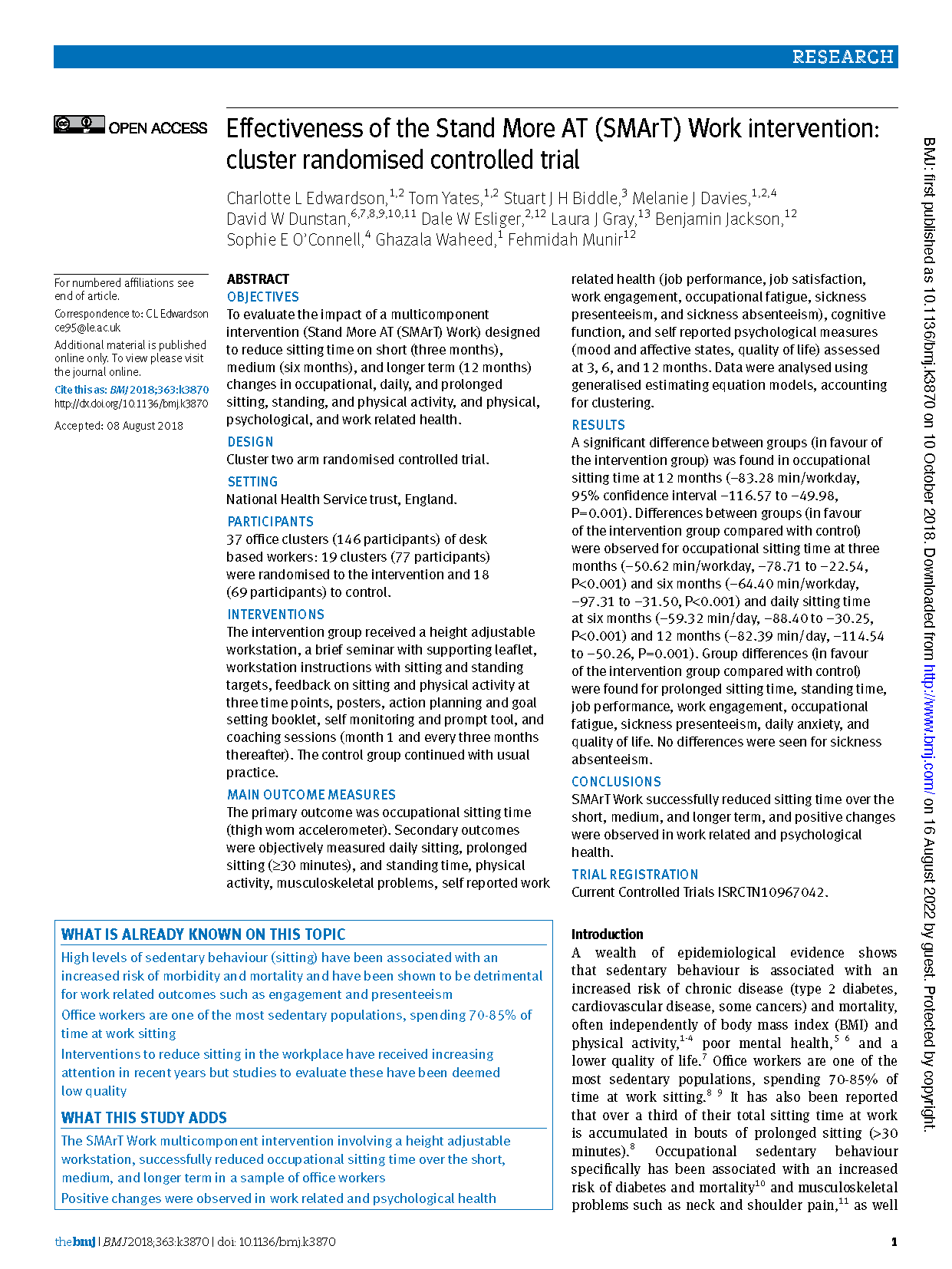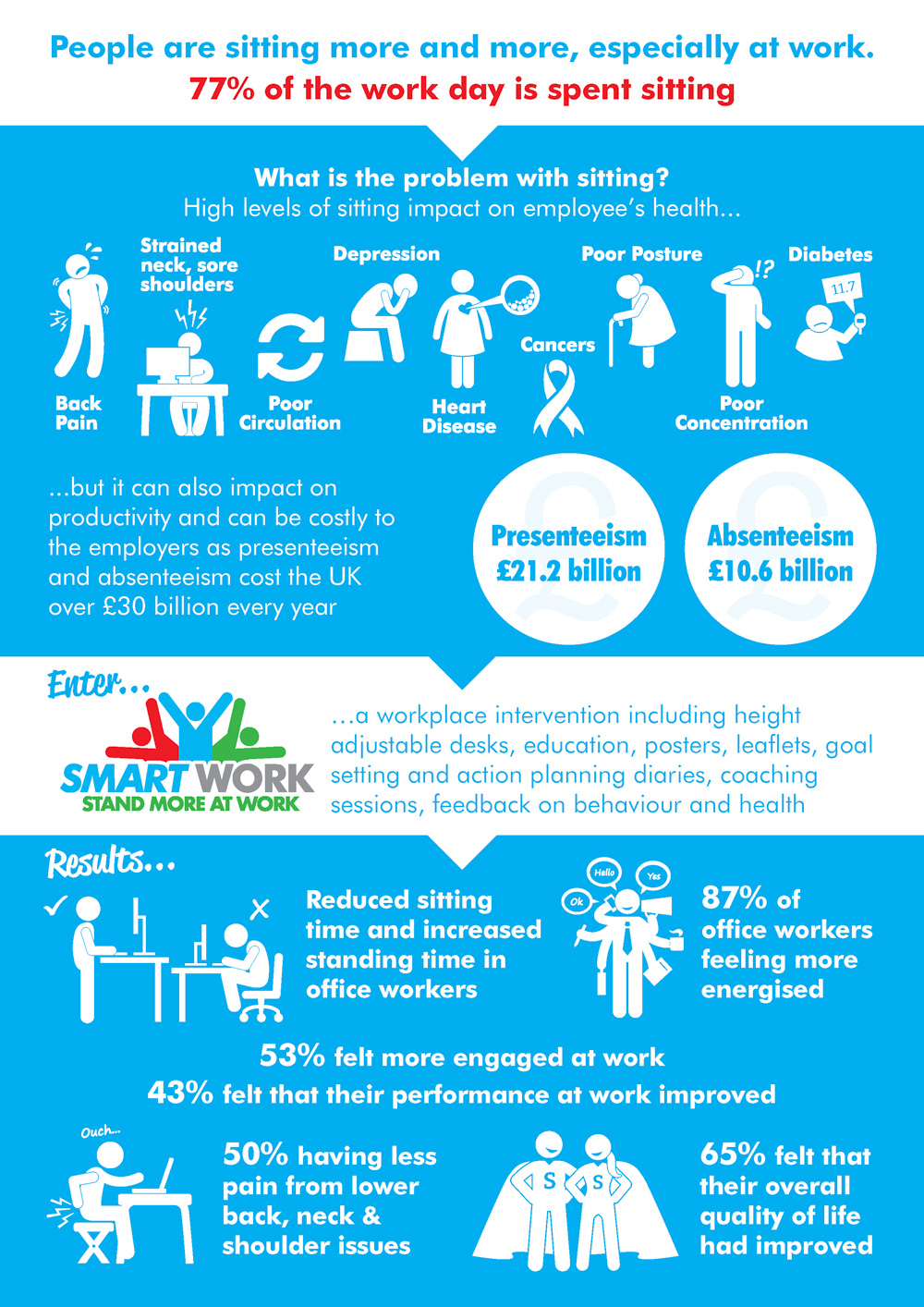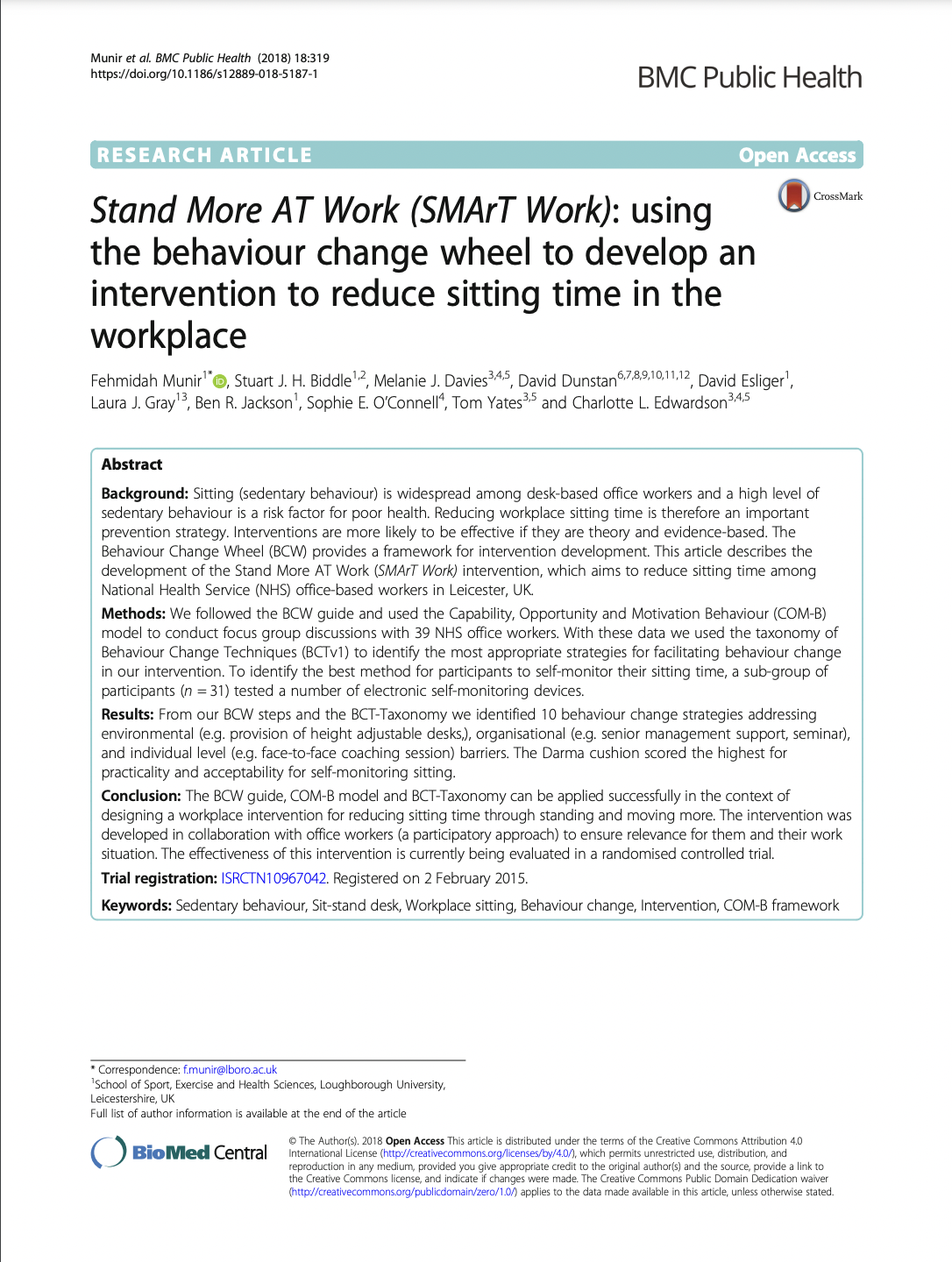Why use us?
The Evidence Base
The SMART Work & Life programme is based on 7 years of development and testing by the research team. Find out more below with our latest evidence first:
We are pleased to be able to share with you our latest research publication read on for an overview. In 2018 we began refinement of the SMART Work programme, expanded and renamed the programme to SMART Work & Life to encourage less sitting not just whilst working but also in leisure time. The testing of the SMART Work & Life programme was conducted between 2018 and 2020 and was the largest study of its kind worldwide. It was tested on desk-based workers in six councils across the UK. You can read more about the SMART Work & Life evaluation here.
We tested the programme with and without the provision of a height-adjustable workstation to understand how important it was to have this piece of equipment for behaviour change and improvements in health, wellbeing and work-related outcomes.
Participants receiving either version of the programme (without and with a height-adjustable workstation) demonstrated:
- Reduced sitting time
- Reduced stress
- Improved wellbeing
- Increased work engagement
- Feeling more energised, focused and productive
The participants who received the programme with a height-adjustable desk additionally reported benefits for musculoskeletal issues in the lower body.
If you want more detailed information check out our paper published in the prestigious British Medical Journal. Further publications on the participants’ experiences with the programme and the cost-effectiveness of the programme will be published in 2023.
In 2020 the research team worked out how much money an employer would save if they ran the SMART Work programme in their company. They calculated a cost-benefit analyses to do this and found:
- The programme was found to be cost-saving = £2.56 returned for every £1 spent
- Further costs savings were shown when staff used simpler, free tools to self-monitor sitting time and prompt breaks in sitting resulting in £4.72 returned for every £1 spent
- Employee productivity improved by an average of 1.75 hours per week over a 12 month period
If you wish to find out more about the cost-benefit analysis, read our paper, which was published in the International Journal of Environmental Research and Public Health.
2018 saw the publication in the BMJ looking at how well the SMART Work programme worked for reducing sitting and improving health and well-being in desk-based workers within the National Health Service (NHS). They used the gold standard research methodology to do this – a randomised controlled trial. After 12 months, they found:
- Reductions in sitting whilst at work
- Increases in job performance
- Improvements in lower back, neck and upper extremity musculoskeletal issues
- Reductions in sickness presenteeism
- Reductions in fatigue
- Greater staff engagement
- Increases in quality of life
Take a look at our infographic across which highlights our evidence of the SMART Work programme.
If you want more detailed information check out our paper published in the prestigious British Medical Journal.
Researchers from the University of Leicester and Loughborough University wanted to develop an evidence-based programme to help desk-based workers to reduce the time they spent sitting.
In 2015, our research team spent 12 months working with desk-based workers to design and develop a programme called SMART Work.
The SMART Work programme included:
- An education workshop
- Provision of height adjustable desks/platforms
- A device to keep track of sitting time and provide movement reminders
- Feedback on sitting behaviour
- Action planning and goal setting
- Motivational posters
- Brief ‘catch up/progress’ sessions with the research team
Click here to read more about how we developed the programme in our paper published in 2018.
Get in touch
To receive our free starter kit and to organise a no-obligation quotation for any of our SMART Work and Life packages, please register your interest.
